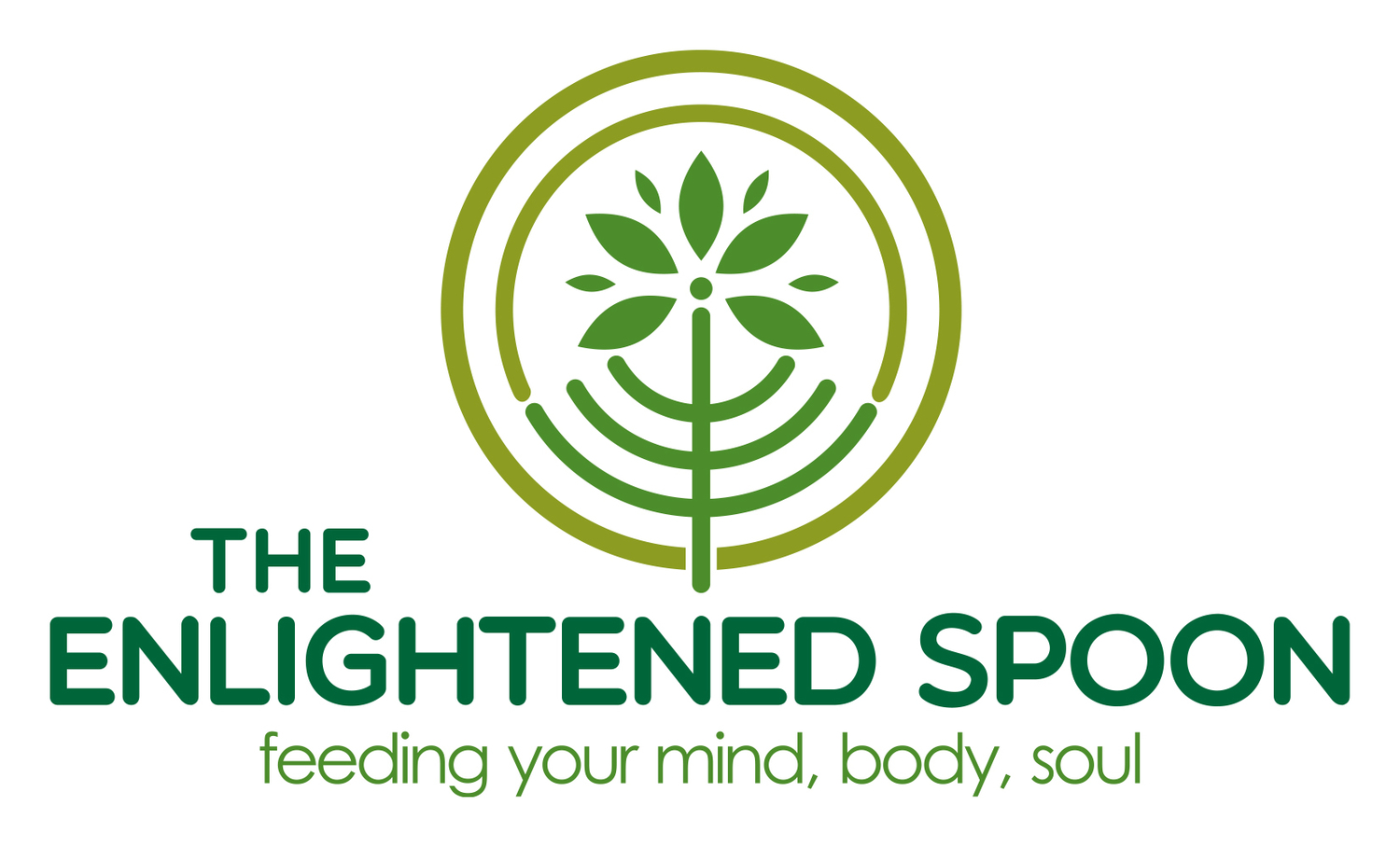8 Supplements and Natural Remedies for Hay Fever
/Spring is officially in full swing, but this season might fill you with a sense of dread if you tend to get hit quite badly with seasonal allergies.
Hay fever is an allergic disorder of the immune system - your immune system views harmless inhaled pollen or other allergens as dangerous substances invading the body and launches an immune response to attack them. Inflammatory chemicals like histamines and leukotrienes are released as part of this immune response, causing inflamed sinuses and eyelids leading to the sneezing, runny nose and teary eye symptoms of hay fever (aka allergic rhinitis). [1]
Many natural remedies and supplements that help boost your immunity, reduce histamine levels and keep inflammation at bay could be the key to keeping your sinuses in tiptop condition.
1. Quercetin
Quercetin is a bioflavonoid compound found in many plants. It has strong antioxidant, anti-inflammatory and antihistamine properties. It has been researched to prevent immune cells from releasing histamines, hence may help reduce hayfever symptoms.[2] It's basically nature's antihistamine.
Foods containing higher amounts of quercetin: onion, apple, berries, peppers, tomatoes, cruciferous veggies, cacao, capers. [3]
Quercetin may also be taken as a supplement - 250mg, 2 times daily for up to 12 weeks, in conjunction with Bromelain and Vitamin C. [4]
2. Bromelain
Bromelain is an enzyme most commonly found in pineapples, but isn’t high enough in this food form to be used therapeutically as a medicine. It can be used to treat many different health issues, but its anti-inflammatory properties are good for hay fever specifically - it may help reduce the cough and nasal mucus associated with sinusitis. It may also relieve the swelling and inflammation caused by hay fever. [5]
In a double-blind research trial, participants given 160mg of Bromelain daily experienced significant improvements in nasal drainage, swelling and restored free breathing, compared to those on placebo (dummy) treatment. If you are having an allergic reaction, take up to 300mg daily or to reduce your allergic potential, take up to 100mg daily. [4]
Bromelain can also be used together with quercetin and vitamin C.
3. Vitamin C
Vitamin C is now a household name as an immune booster, with many taking at least 1,000mg daily supplemental doses. It promotes a strong immune system, immediately calms down allergic reactions and is also anti-inflammatory.
If you’ve currently got hay fever symptoms, you may want to take 2,000mg vitamin C on a regular basis. Since it’s excreted from the body within six hours, it’s best to take it in divided doses - either 1,000mg in the morning and 1,000mg at lunch or if taking larger amounts, 1,000mg four times a day. [4]
Foods containing higher amounts of vitamin C: Papaya, bell peppers, dark green leafy veggies (eg. broccoli, brussels sprouts), strawberry, pineapple, citrus fruit (eg. orange), kiwi fruit. [6]
4. Probiotics
70% of your immune system lies in your gastrointestinal tract as your GALT (gut-associated lymphoid tissue). There are many dynamic immune modulatory functions the GALT is involved in, and maintaining a good balance of gut flora helps. This is why taking a good high volume, multi-strain probiotic may help reduce hay fever symptoms. [7]
A recent randomised controlled placebo trial published in the American Journal of Clinical Nutrition gave hay fever sufferers either 2 capsules of probiotics providing 3 billion units of bacteria or a placebo equivalent. After 8 weeks, those on probiotics had improved by 49% compared to placebo. [8]
This study used a combination of Lactobacillus and Bifidobacteria, so you might want to ensure your probiotic supplement contains the same strains too.
Fermented foods containing probiotics: natural Greek yogurt, fermented vegetables eg. sauerkraut, kimchi, pickles; miso (fermented bean paste), tempeh (fermented tofu), kefir, kombucha.
This breakfast/ snack of mixed berries, coconut yogurt, cacao powder and cacao nibs has a great combo of quercetin, vitamin C, raw honey and probiotics to help hay fever.
5. Omega-3 Fish Oil
A number of studies have shown a positive link between increased omega 3 fish oils decreasing hay fever symptoms [9, 10], which may be due to omega 3’s anti-inflammatory effects.
Foods containing higher amounts of Omega 3 fats: oily fish (eg. salmon, mackerel, anchovy, sardine, herring, trout), hemp seeds, walnut, flax, chia seeds.
Omega-3 may also be taken as a supplement - don’t exceed more than three grams daily from food and supplement sources. [11]
6. Raw Honey
Some people take local raw honey as they believe being exposed to the bee pollen may help them develop immunity to their pollen allergies. This seems a little far-fetched, as hay fever may not only be due to pollen but also to the grasses and trees (that bees don’t visit). HOWEVER, I do see the benefit in the immune-boosting benefits of raw honey, which in turn may help hay fever.
Bear in mind, this is not the industrially processed honey found on your supermarket aisles. In order to keep the beneficial enzymes alive, you want to find raw, unpasteurised honey. And be mindful of eating honey in moderation, as it’s high in fructose. 1 teaspoon a day should be sufficient. [12]
7. Reishi mushrooms
Reishi mushrooms (aka lingzhi, or Ganoderma Luciderm) are a powerful immune system regulator and have been researched countless times for their anti-cancer properties. It’s used often in traditional Chinese medicine (TCM), as well as a medicine in Japanese hospitals. As an anti-inflammatory and anti-allergenic, it can also be used to help relieve hay fever symptoms. [13]
Reishi can be taken as a supplement in dry mushroom powder capsules, up to 5.2gm per day, divided into 1.8gm taken 3 times a day. [14]
8. Neti Pot/ Nasal Irrigation
The neti pot, or nasal irrigation, is an ancient yogic practice. It involves pouring a warm saline solution into one nostril with your head tipped to one side, allowing the solution to flow through your sinuses and out the other nostril. It basically flushes your sinuses out - and gobs full of mucous may flow out the other end. Here’s a “how to” video.
It’s important to note that the neti should be done preseason before any allergies kick in, and not while your sinuses are inflamed. If you’re in the middle of a hay fever attack, you may be aggravating symptoms even more by doing the neti. Doing the neti before your allergies hit ensures you keep your sinuses cleared out, reducing your chances of a flare-up later.
There's just no elegant way of doing this, but this lady sure looks happy with her neti!
If you liked this, you might also like these other resources:
Get 5 monthly tips on fitness and mindfulness - find easy ways to incorporate healthy living into your daily routine.
Download your “7 days of green smoothies” checklist (tips, recipes, shopping list).
REFERENCES:
Nordqvist, J. (2015). Hay Fever: Symptoms, Diagnosis and Treatments. Available: http://www.medicalnewstoday.com/articles/160665.php
Ehrlich, SD (University of Maryland Medical Centre) (2015). Quercetin. Available: http://www.umm.edu/health/medical/altmed/supplement/quercetin
Axe, J. (2015). 7 Proven Benefits of Quercetin. Available: https://draxe.com/quercetin/
Holford, P (2017). Six Nutrients that Work for Hayfever. Available: https://www.patrickholford.com/advice/how-to-stop-sneezing-sniffling-and-hayfever
Ehrlich, SD (University of Maryland Medical Centre). (2014). Bromelain. Available: http://www.umm.edu/health/medical/altmed/supplement/bromelain
World's Healthiest Foods (George Mateljan Foundation). (2017). Vitamin C. Available: http://www.whfoods.com/genpage.php?tname=nutrient&dbid=109
G Vighi, F Marcucci, L Sensi, et al. (2008). Allergy and the gastrointestinal system. Available: https://www.ncbi.nlm.nih.gov/pmc/articles/PMC2515351/
Dennis-Wall JC, Culpepper T, Nieves C Jr et al. (2017). Probiotics (Lactobacillus gasseri KS-13, Bifidobacterium bifidum G9-1, and Bifidobacterium longum MM-2) improve rhinoconjunctivitis-specific quality of life in individuals with seasonal allergies: a d. Available: https://www.ncbi.nlm.nih.gov/pubmed/28228426
Miyake Y, Sasaki S, Tanaka K, et al. (2007). Fish and fat intake and prevalence of allergic rhinitis in Japanese females: the Osaka Maternal and Child Health Study. Available: https://www.ncbi.nlm.nih.gov/pubmed/17634174
Hoff S, Seiler H, Heinrich J, et al. (2005). Allergic sensitisation and allergic rhinitis are associated with n-3 polyunsaturated fatty acids in the diet and in red blood cell membranes. Available: https://www.ncbi.nlm.nih.gov/pubmed/16015268
Mayo Clinic. (2013). Omega-3 fatty acids, fish oil, alpha-linolenic acid. Available: http://www.mayoclinic.org/drugs-supplements/omega-3-fatty-acids-fish-oil-alpha-linolenic-acid/safety/hrb-20059372
Adams, C. (2015). Raw Honey Contains Probiotic that Boosts Immunity. Available: http://www.greenmedinfo.com/blog/raw-honey-contains-probiotic-boosts-immunity
Bhardwaj N, Katyal P, Sharma AK. (2014). Suppression of inflammatory and allergic responses by pharmacologically potent fungus Ganoderma lucidum. Available: https://www.ncbi.nlm.nih.gov/pubmed/24948193
Examine.com. (2017). Ganoderma lucidum. Available: https://examine.com/supplements/ganoderma-lucidum/











